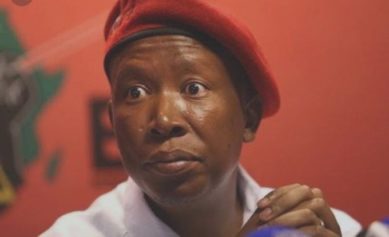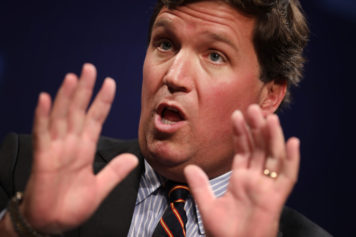South African President Jacob Zuma, intervening more directly in the mining strikes in an effort to rescue his country’s crippled economy, has called on the mine workers to return to work and asked their bosses to agree to year-long salary freezes in a show of good faith.
Zuma’s intervention comes as the Gold Fields gold mine threatened to fire up to 25,000 employees if they didn’t return to work today—two weeks after Anglo American Platinum fired 12,000 striking workers. But the miners were adamant that they wouldn’t go back until they received the wages they are seeking.
Zuma met at the same time with the business leaders from the mines and the union leaders representing the striking workers.
“We are agreed that violence and intimidation must come to an end. These have no role in our system and simply have a negative effect,” Zuma said. He asked the executives to freeze salaries and bonuses for the next year as a “strong commitment to build an equitable economy” and to address income inequality.
“The parties make a call on CEOs and executive directors in the private sector and senior executives in the public sector to agree to a freeze in increases in salary and bonuses over the next 12 months, as a strong signal of a commitment to build an equitable economy,” Zuma said. “They call for an informed national conversation on income inequalities and how best to address them.”
Zuma is desperate to bring an end to the mine conflict, which erupted in August at the Lonmin mines in Marikana when police opened fire on a group of striking workers, killing 34 in a massacre that shocked the world. The unrest has rocked the nation’s economy and resulted in the serious decline of the rand, the South African currency. South Africa is the world’s biggest platinum producer and the fifth-biggest gold producer.
The ANC Youth League has been challenging Zuma’s leadership, leading to internal conflicts in the ANC that observers say has led to significant distraction for Zuma and moved him away from seeking a solution to the labor crisis.
Income inequality is a major issue in the country. According to Dawie Roodt, chief economist with the South African financial services company Efficient Group, South Africa’s income distribution is “very skewed.”
“In fact if you look at the so-called Gini coefficient [a measure of income inequality] South Africa’s income distribution is of the worst in the world,” he told the BBC’s Focus on Africa program.
Roodt said at least 25 percent of South Africans were unemployed—and as much as 40 percent by some definitions.
“The executives are very well remunerated… and then low-level workers are quite often paid a fraction of what their bosses get.”


